'We're going to grow him': Human composting is rising in popularity as an earth-friendly life after death
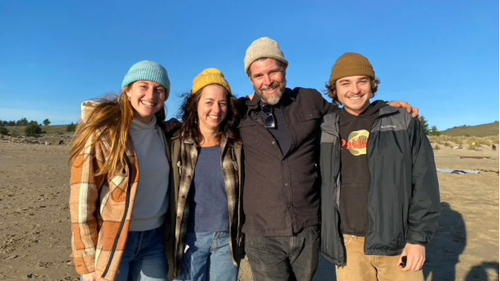
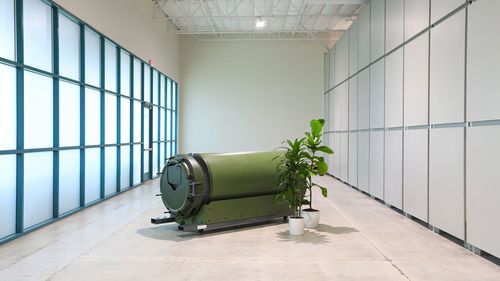
How human composting works
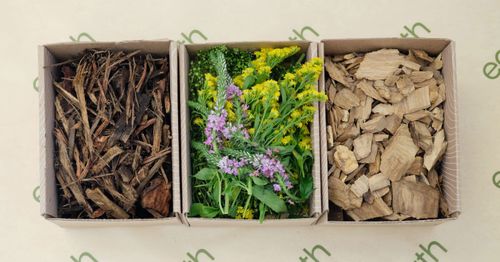
It’s possible that I shall make an ass of myself. But in that case one can always get out of it with a little dialectic. I have, of course, so worded my proposition as to be right either way (K.Marx, Letter to F.Engels on the Indian Mutiny)
'We're going to grow him': Human composting is rising in popularity as an earth-friendly life after death



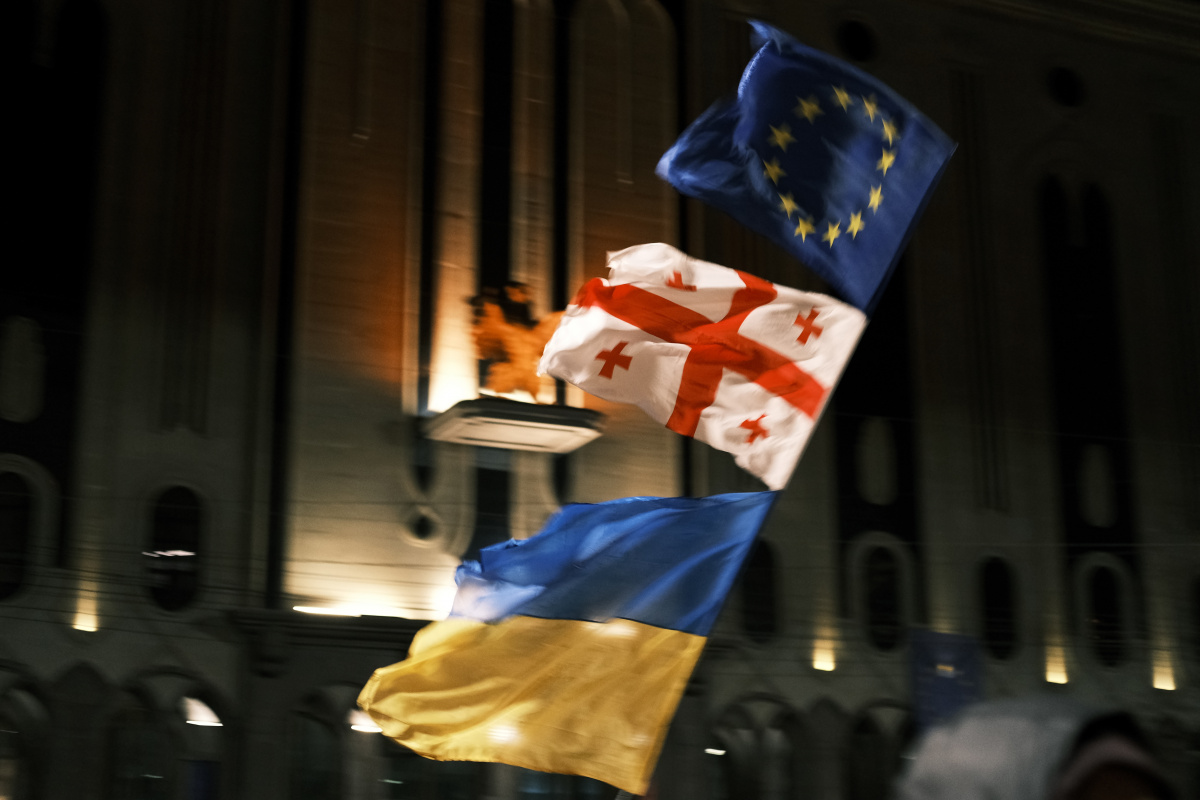
The histories of Ukraine and Georgia (Sakartvelo) share much in common. Since recognizing their independence, Russia has used every means to try to subjugate both Ukrainians and Georgians once again. Yet, both countries not only resist but also support one another.
In 1993, during the Georgian-Abkhaz conflict in Sukhumi, Ukraine organized a humanitarian mission to rescue 8,000 Georgian refugees stranded in the mountains. At the same time, a Ukrainian legion fought alongside Georgians. In 2008, during the Russo-Georgian War, Ukraine supplied Georgia with air defense systems, and Ukrainian fighters again stood shoulder to shoulder with Georgians. During Ukraine’s Revolution of Dignity, Georgians came to support Ukrainians. In 2014, when the war in Donbas began, Georgians joined the fight alongside Ukrainians and formed the Georgian Legion. After Russia’s full-scale invasion in 2022, dozens of Georgians enlisted in the Legion and went to fight in Ukraine. Meanwhile, in Tbilisi, large amounts of humanitarian aid were collected for Ukrainians, even as the Georgian government remained silent. According to a survey by the Georgian research company ATS, 87% of Georgians consider the war in Ukraine to be their own war. Ukrainians and Georgians understand each other like no one else.
Currently, anti-government and pro-European protests have been ongoing in Georgia (Sakartvelo) for the fourth consecutive week. A journalist from Donbas News who regularly attends the rallies in Tbilisi has prepared a report, speaking with two Georgians and a Ukrainian about mutual support, war, and protests.
After the elections in Georgia (Sakartvelo), which, according to the opposition Coalition for Change, were falsified, the pro-Russian party Georgian Dream emerged victorious. In the days that followed, tension simmered in Tbilisi, with no clear outlet. There were protests and tents were set up, but the demonstrations remained relatively small. That changed on 28 November when Georgian Prime Minister Irakli Kobakhidze announced that Georgia would postpone negotiations for EU membership until 2028. As Georgians jokingly say, “The opposition couldn’t bring people to the streets, but Kobakhidze managed to do it for them.” The country erupted.
That evening, a massive crowd gathered in front of the parliament in Tbilisi. I joined the protest, making my way closer to the building through the crowd. But I couldn’t get too near—the throng was too dense. I tried to make sense of what was happening when I suddenly heard someone shout:
– გაზი! Gazi! (Gas!)
The crowd started fleeing from the riot police—nicknamed “Robocops” in Georgia—who had fired tear gas capsules at us. My vision blurred, and my throat tightened, a familiar feeling from when the Robocops dispersed protests against the foreign agents’ law in 2023. The crowd, filling much of Tbilisi’s main avenue, Rustaveli, surged forward. Some people stumbled.
– ნელა! Nela! (Slowly!) – Georgians shouted to one another to prevent injuries in the crush. The word means “slowly” in Georgian.
The crowd slowed down. I moved further away to catch my breath in cleaner air. Each inhalation after the gas was excruciating. Around me, people coughed uncontrollably as we stopped by the Opera House. A few people had come prepared with saline solution to rinse eyes affected by the gas. Those with the solution were embraced by others in gratitude.
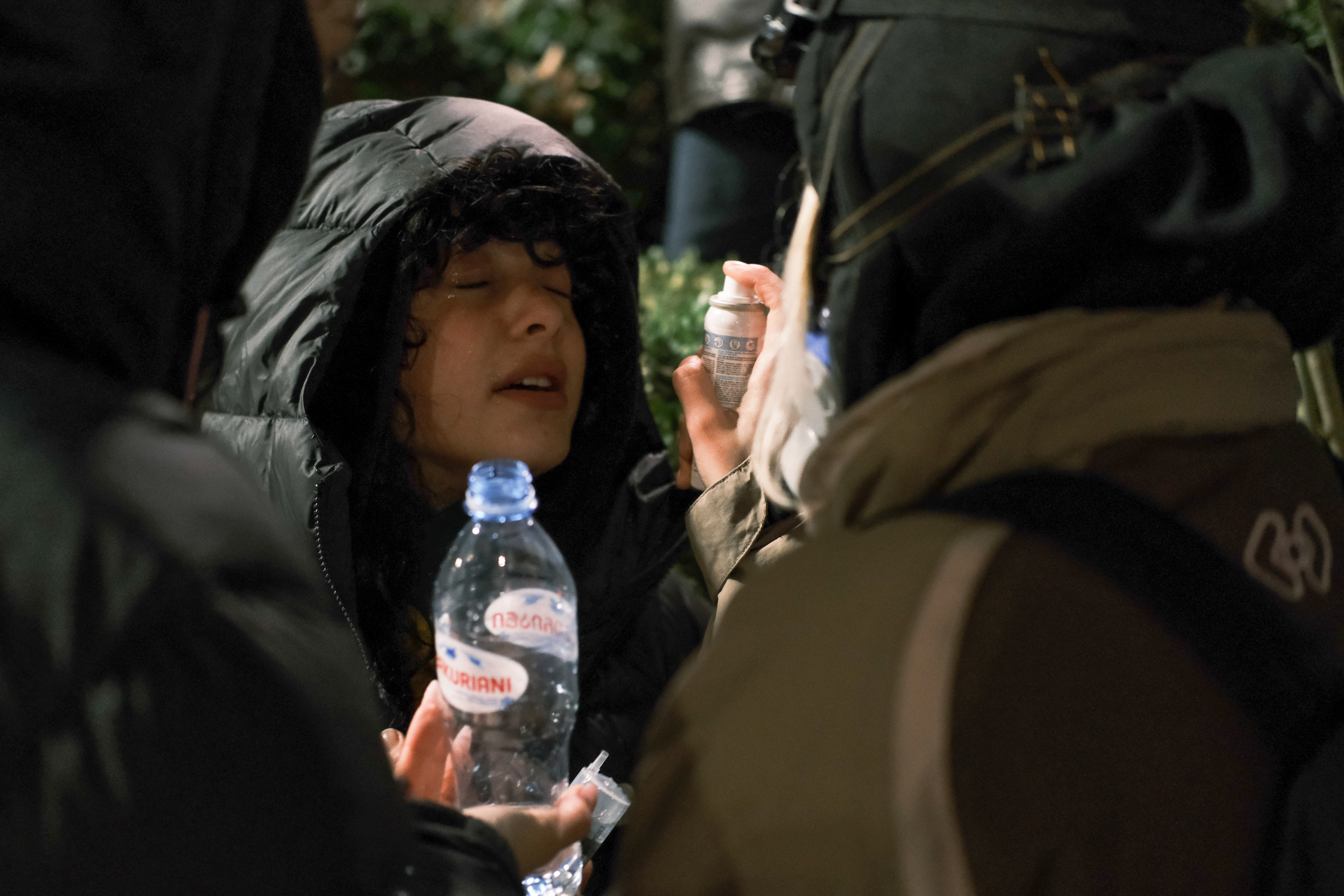
I wipe away my tears and try to figure out what’s happening at Parliament. I open Telegram: someone was taken away by ambulance after the gas attack, someone else was beaten by the riot police. Even in towns with populations under 3,000, people have joined the protests. The whole country is protesting. I subscribe to new Georgian Telegram channels where admins are reporting on what’s happening at the sites of clashes with the authorities.
We return to Parliament, but from the middle of the crowd, it’s impossible to see anything. I check Telegram again for updates. “Javakhadze!” reports that serious clashes between security forces and protesters have already begun near Parliament, with water cannons being used. We shout, “Sakartvelo Gaumarjos!” (“Long Live Georgia!” – ed.). We stood until morning, and it became clear: the authorities are determined to suppress the protest forcefully, while the Georgians are determined to stand their ground until the very end.
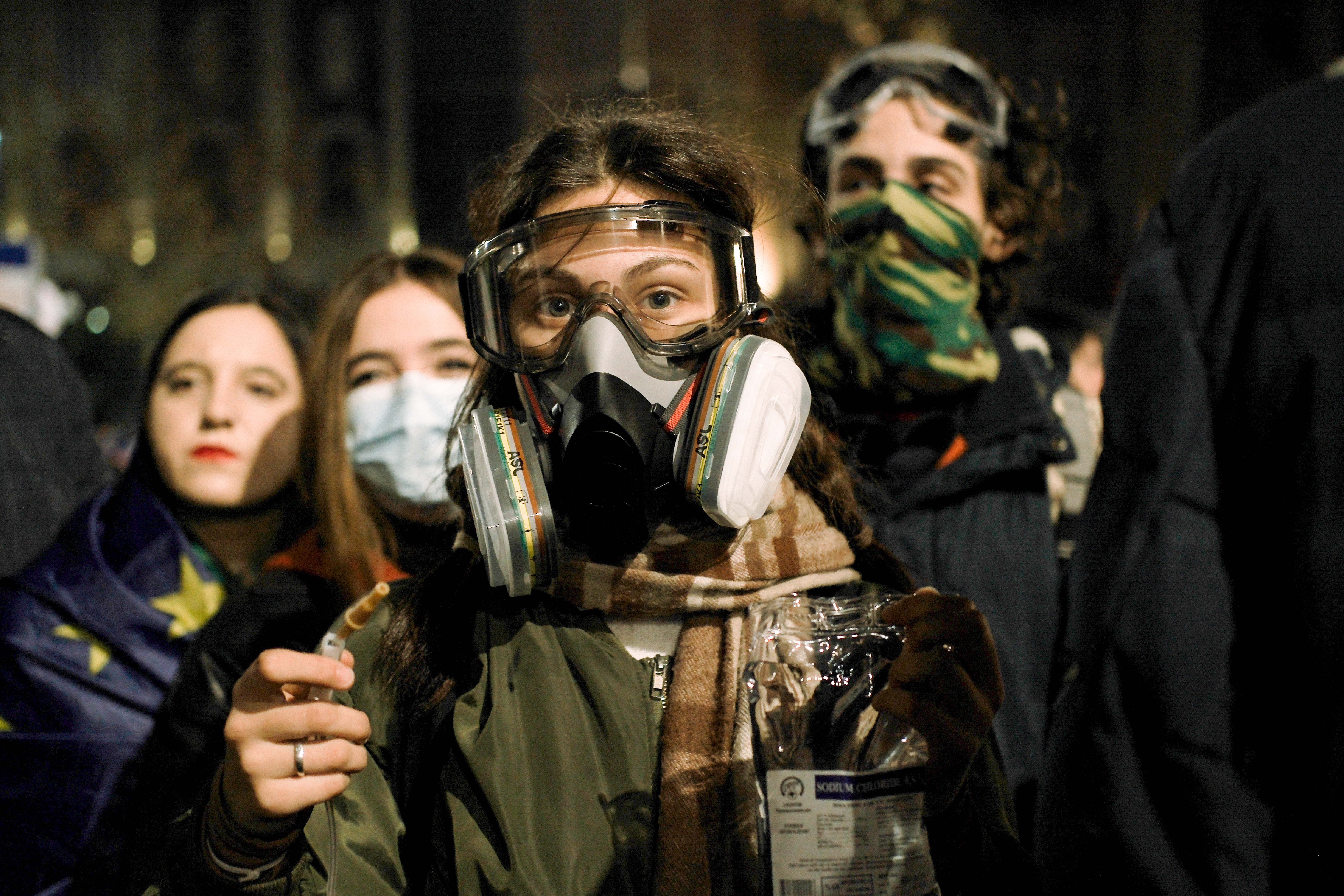
At home, I write to a close friend in Kyiv. I know she’ll understand my decision to stand with Georgians at the protests like no one else. She asks me to be careful and sends a list of items that might come in handy—protective gear and medicines she always carried with her on the Maidan. If anyone has received a “Maidan manual,” it’s me. The adrenaline keeps me awake, so I decide to look up the author of the “Javakhadze!” channel. It’s run by Zurab Javakhadze, a photojournalist. Until the age of 10, Zurab lived in Tbilisi before his parents moved him to Moscow. He worked in Russia for many years, covering protests and events in the Caucasus. Later, he went to document the Maidan and the frontlines at the beginning of the war in 2014. In 2022, he returned to Tbilisi with his family. Now, he photographs protests in Georgia (Sakartvelo) for his Telegram channel.
Zurab shares what he witnessed on the Maidan ten years ago and what is happening now in Tbilisi:
“It’s hard to imagine now, but in 2014, you could work for TASS in Ukraine—I even had accreditation from the SBU. I arrived in Kyiv before the first crackdown on protesters, right when everything was just beginning. I literally slept through the first dispersal—came out of the Hotel Ukraina at 7 a.m., and the whole area was cordoned off, with no one around. After that, everything escalated quickly. The clashes on Bankova Street happened next—that’s where I was photographing.A Berkut officer ran up to me and shouted, ‘Get down!’ I instinctively lay on the ground, using my camera lens to shield the back of my head. Five of them started beating me. I was saved by some guys from the Internal Troops—they were conscripts. Nearby was Evgeniy Maloletka, and they broke his wrist that day. I got back up and started taking photos again, finding myself behind the police lines. The officers brutally beat a huge number of people—anyone they could reach—women, the elderly, everyone. I captured them dragging a woman by the neck, choking her. One of my photos from that day made The Times’ top 20 images of 2013.”
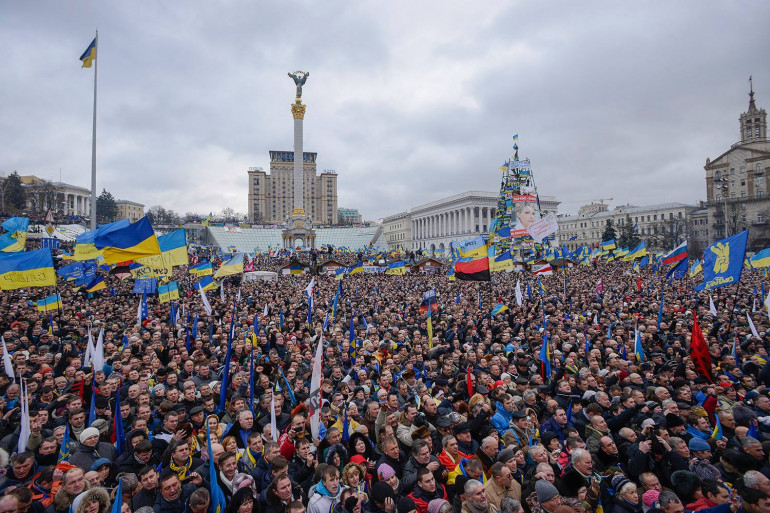
After the first crackdown, Ukrainians didn’t just come back—they came out in a massive wave, about half a million people. When I saw that, I became a Ukrainophile. The freedom-loving spirit of the Ukrainian people amazed and inspired me. I always tell my wife that if not for Tbilisi, I would have moved to Kyiv. I went to the Maidan several more times. I was in Ukraine when Saakashvili gave a speech there. He stood on the Maidan and said, “Russia is going to start a war.” I looked at the faces of the people around me—they were deeply frightened, whispering to each other, asking, “What is he talking about? What war?” Ukrainian society didn’t want a war, and it wasn’t prepared for one.
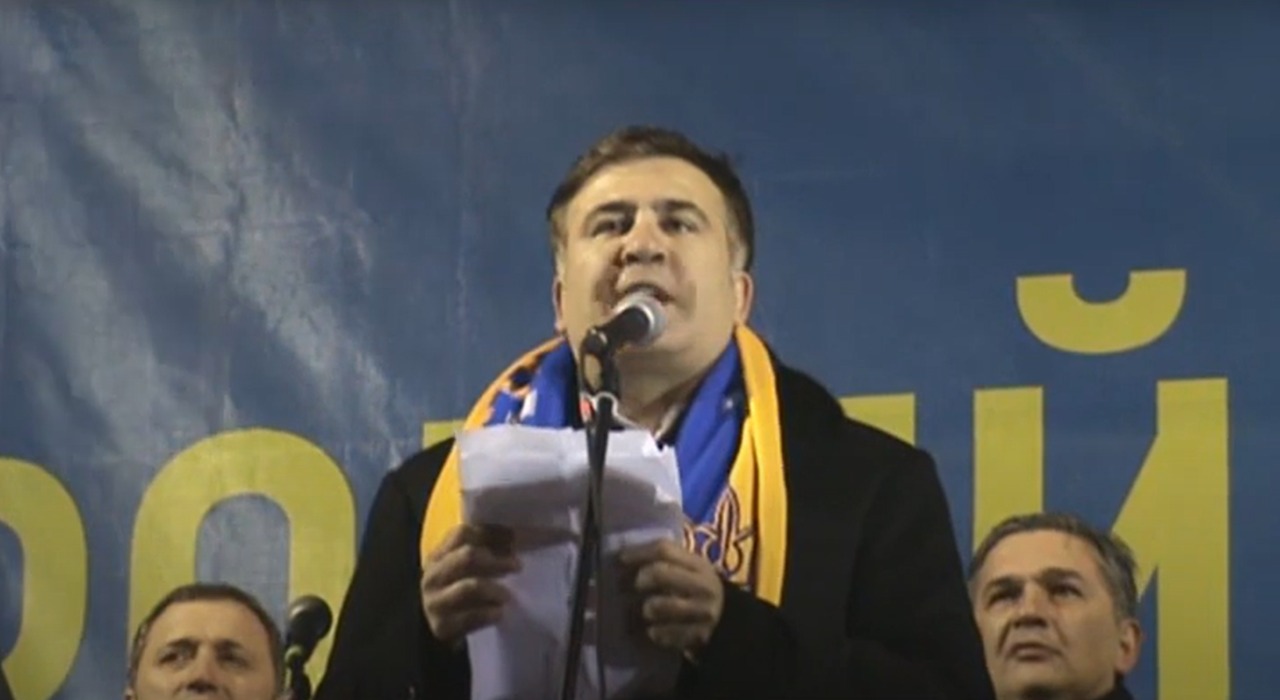
Then the war began, and I went to the frontlines. Once, I was right on the line of contact and ended up in a bomb shelter with civilians. Everyone fell asleep except for me and one woman who couldn’t sleep either. We started talking, and she told me she had moved to Donetsk from the Rostov region. Back when nothing had yet happened in Donetsk, her relatives started calling her, saying that “Banderites” were killing people in Ukraine. That’s when, she said, she realized who was behind it all. She told me she and many others in Donbas didn’t understand where the referendum would lead. “If I had known how it would all end,” she said, “I would have taken an axe and killed those who initiated that referendum.”
I witnessed an incident where a militant approached an elderly Ukrainian vendor at a market. The man in uniform started talking about how they had come to defend the “DNR” there. The Ukrainian man looked him in the eye and said, “I don’t know any ‘DNR.’ I’m Ukrainian, I was born in Ukraine, and this will always be Ukraine. I don’t know who you’re protecting here, but it’s definitely not me.” But I also want to point out that in Donbas, many people reacted differently. Donbas was one of the places where the Soviet Union most actively shaped the “Soviet person,” and the decades of propaganda bore fruit. I’ll never forget a miner from Luhansk region who joined the “USSR Battalion.” He told me, “These khokhols forced me to learn Ukrainian, but why the hell do I need their Ukrainian?” This was a man who had lived his entire life in Ukraine and was outraged that he was made to learn Ukrainian.
When I left, I was sure the separatists would be driven out within two weeks and everything would return to normal. I saw the mood of the people—many were pro-Ukraine. The separatists were few in number. But then the Russian army arrived, and a terrible tragedy unfolded. I felt deep sympathy for the Ukrainians because I knew what would come next—my country had already gone through this. It felt like someone had dusted off the “Abkhazia-Georgia” folder, changed the geographic names, and replayed the exact same scenario.
After the war in Ukraine began, censorship appeared in the newsroom. Zurab didn’t hide his stance, and in 2015, he was fired from TASS for it. He stayed in Moscow with his wife and child, as his child needed constant medical treatment that wasn’t available in Georgia (Sakartvelo) at the time. Zurab kept working as a photographer—first shooting weddings, then sports events. But after the full-scale war started, they sold their property in Russia and moved to Georgia (Sakartvelo).
“I saw the start of the full-scale war as a new invasion of my own country by Russia. We see our fate mirrored in what’s happening in Ukraine. In Sakartvelo, people immediately began collecting massive amounts of humanitarian aid, hosting refugees, and donating to the Ukrainian army. Back in the day, Ukrainian volunteers fought in Abkhazia, and many of them gave their lives to stop Russia. Likewise, many Georgian volunteers went to Ukraine to fight in 2022, and they’re still there today. ‘Georgian Dream’ claims, ‘If we don’t stay in power, there will be war.’ But the reality is, as long as Ukraine holds back this horde, there won’t be any war here.”
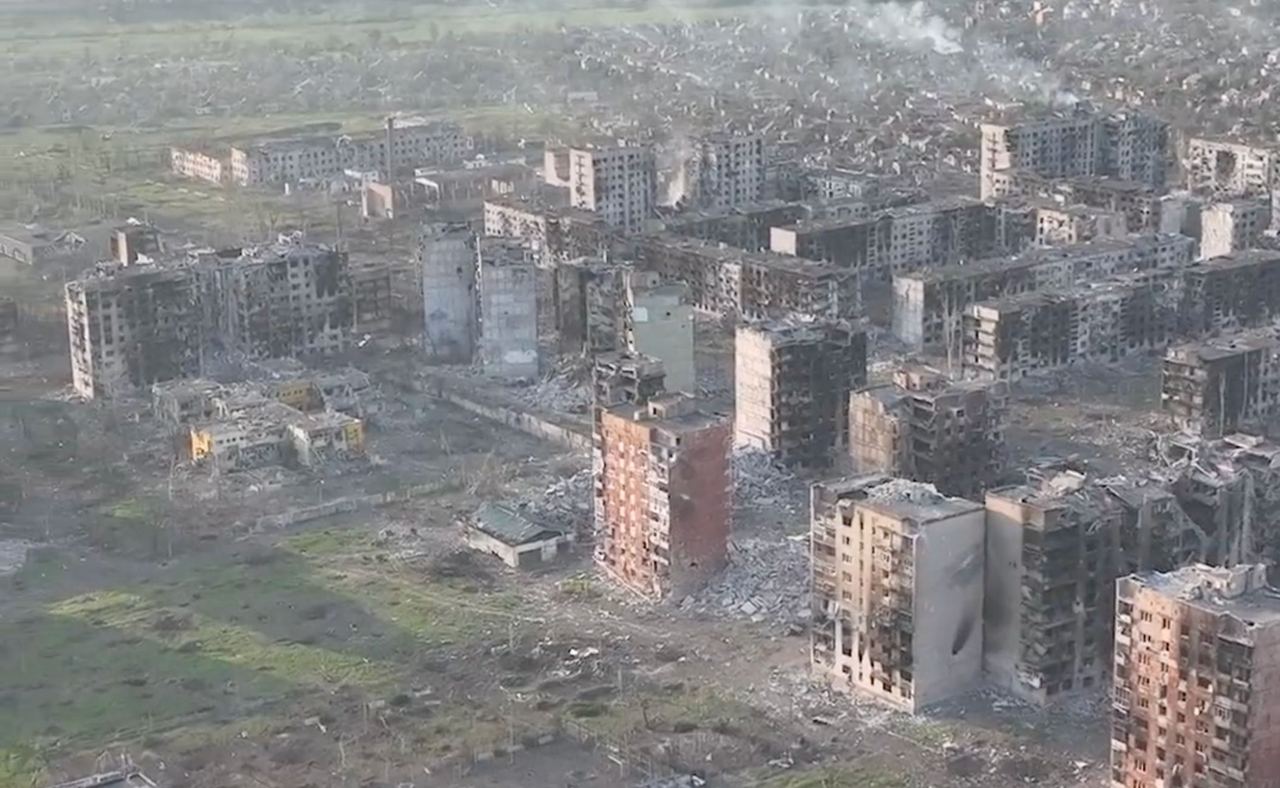
Zurab has joined the pro-European protests in Georgia (Sakartvelo), attending daily demonstrations on Rustaveli Avenue and reporting on them through his Telegram channel:
“Today, the entire country has taken to the streets because we know that Russia means war and ethnic cleansing. We have seen nothing from them but blood and pain. Only EU membership can save us from Russia, which is why these protests have been going on for four weeks and, I hope, will not stop. Otherwise, we will perish as a nation.Right now, the authorities are acting very similarly to how the pro-Russian authorities acted during the Maidan. There are titushky—thugs without uniforms—who are detaining people, as well as the use of tear gas and rubber bullets. The Robocops [riot police] are ready to resort to violence for money. A friend of mine in the police told me that they’re paid 1,000 lari per day for dispersing protests—that’s a lot of money for Georgia (about 15,000 hryvnias—ed.)
We’re all sick and tired of Russia’s attempts to drag us back into the Soviet Union—it’s been thirty years, and we’re still struggling against it. I’m very proud of my country, which has taken to the streets to defend its future.”
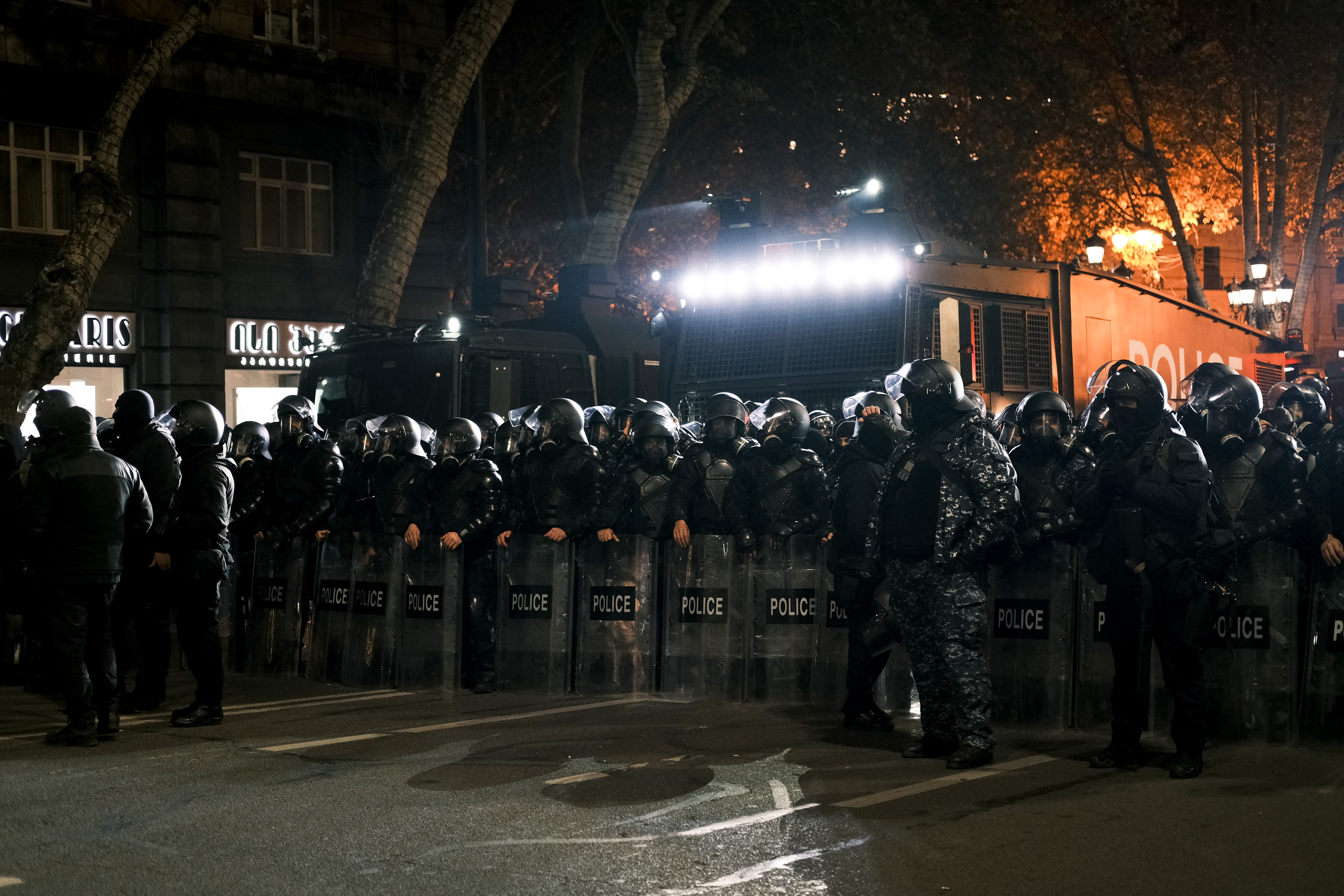
Almost from day one, barricades started rising on Rustaveli Avenue and nearby streets, built from garbage bins and anything else protesters could find nearby. Each new section of the barricades is met with applause. The people on the barricades stand on the front lines, facing the Robocops, and suffer the worst burns from the gas. Running between the barricades to deliver saline solution for people’s eyes, I hear “Bez Boyu” by Okean Elzy—we sang it at the top of our lungs together with the Georgians. The security forces constantly try to tear down the barricades, but for every one they destroy, three more appear. People keep bringing new materials, using whatever is at hand. Fires burn both near the barricades and all along the avenue—it’s already cold at night, and we warm ourselves by them. This is especially vital for those pushed away from the Parliament building by water cannons. Around the fires, people are always drying clothes, and those who managed to stay dry immediately take off their own clothes to give to those soaked. All this, even though the temperature has already dropped below zero.
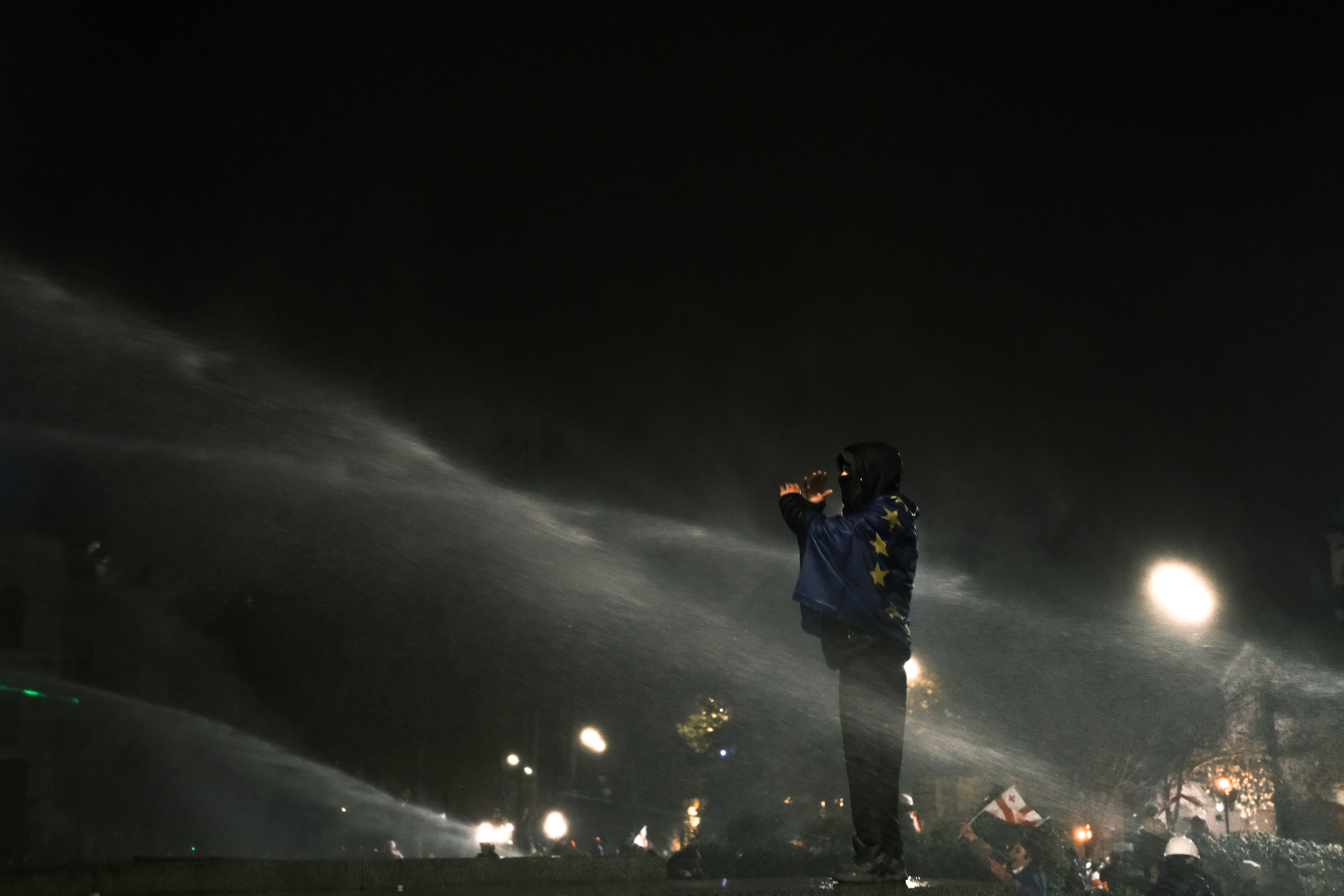
The Robocops are getting angrier by the day. Every evening, they bombard the protesters with an overwhelming amount of chemical agents—smoke grenades, gas capsules, and water from cannons that burns the skin. There’s so much gas it looks like a thick fog has settled over the avenue. Many people, myself included, are wearing construction masks and respirators—I can’t even imagine how those without protection are managing to stay here. As I run between people with saline solution, many shake their heads and show me their own bottles. The gas feels different now; it’s not just hard to breathe—it makes your head spin for quite a while after the attacks. In response to the gas, Georgians started using fireworks. At first, they launched them at the Parliament building, then began “firing back” at the security forces.
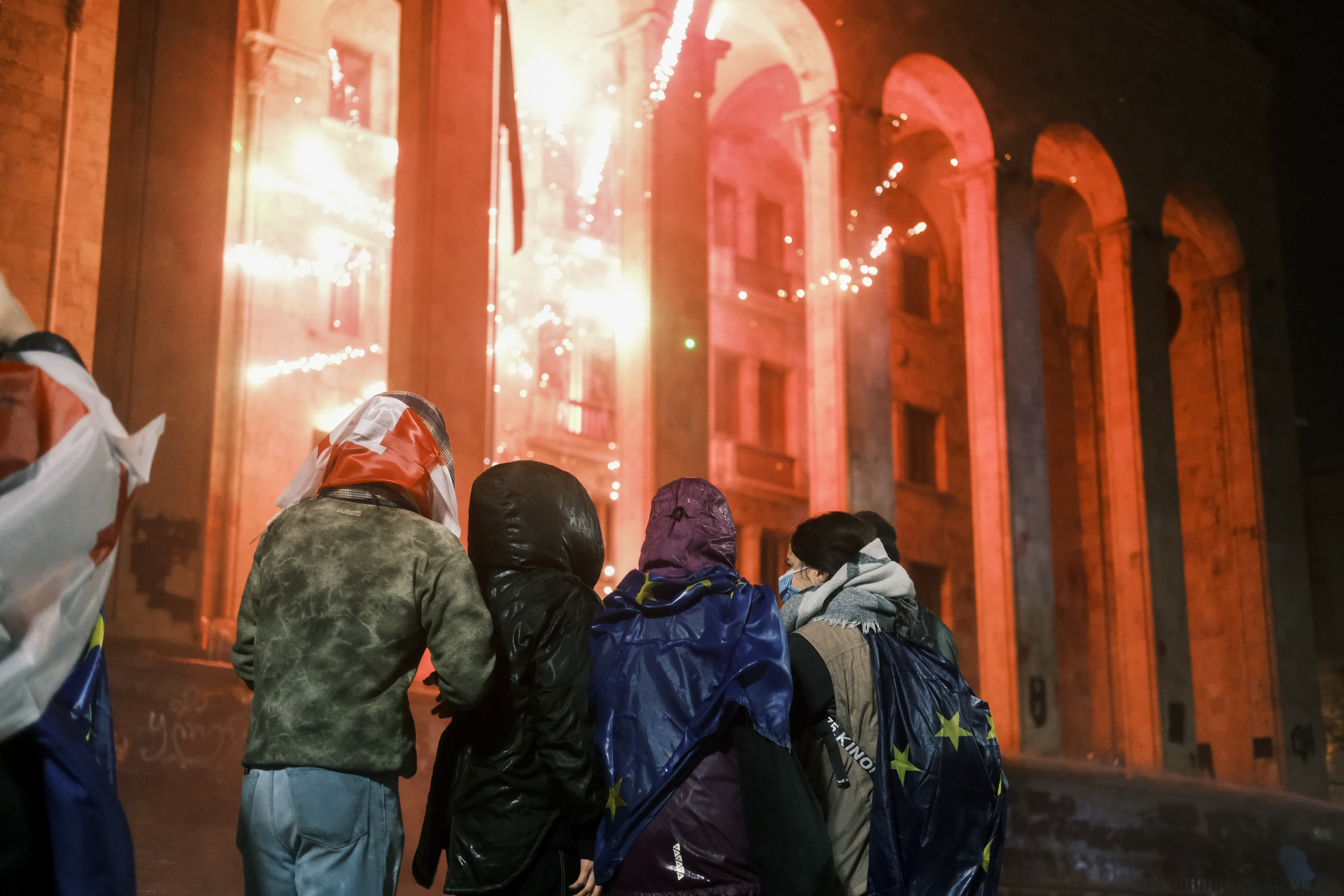
This doesn’t happen all the time. Usually, in the evenings, when people are just starting to gather, the protest remains peaceful. But you never know when the crackdown will begin. During one quiet moment, I walk close to the Parliament and notice a familiar flag with the insignia of the “Georgian Legion,” which fights in Ukraine. I approach it, and the flag is being held by Zurab—he lost both legs after stepping on a mine in the Kharkiv region. We manage to exchange a few words in a mix of Ukrainian and Georgian. I thank him, and he smiles warmly, saying, “This is our shared enemy.” Then the crackdown begins, and I lose sight of Zurab.
The arrests grow harsher with each passing day. Robocops have started detaining even random passersby. Titushky—just like the ones from the Maidan—have appeared. At night, protests are dispersed on the streets, while during the day, people are beaten near their homes or offices, with waves of arrests taking place. The titushky also show up at protests, and when they start beating people, the police simply stand by. They don’t react to cries for them to stop the violence. On 4 December, titushky fractured the skull of Kobe Khabazi, another fighter from the Georgian Legion, in the main office of the “Akhali” party. A week later, he was back on the streets with his head bandaged. The violence from the authorities isn’t working as a method of intimidation—the more people are injured or detained, the more take to the streets.
The fighters of the Georgian Legion were ready to return to Georgia (Sakartvelo) in full force, but President Salome Zourabichvili stated that this would lead to military escalation by the illegitimate government. One of the most well-known fighters of the Legion, Miro Vanadze, moved from Georgia (Sakartvelo) to Ukraine in 2018 to train as a professional MMA fighter.
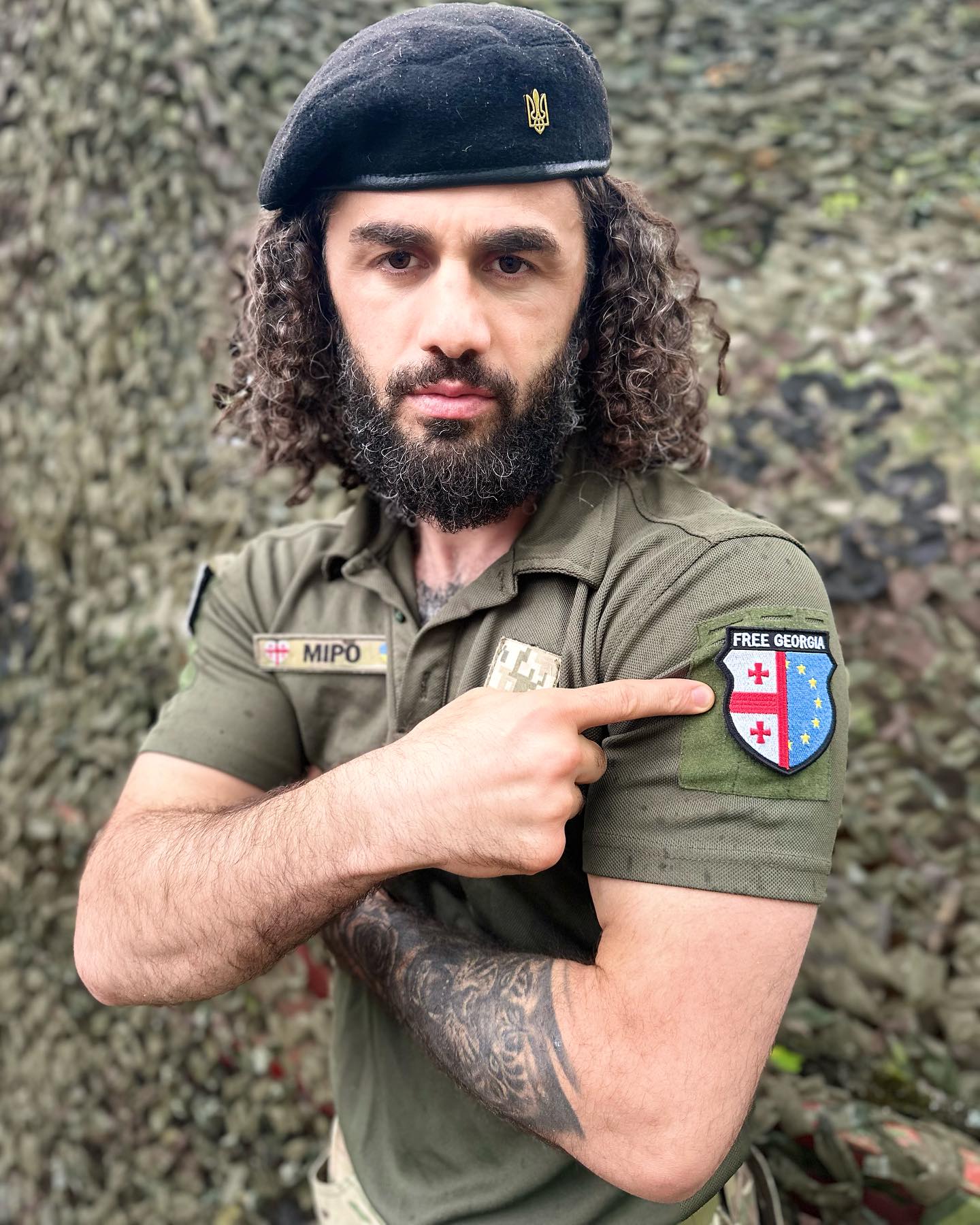
Miro became a two-time world champion in mixed martial arts under WGFC and the president of the International Assembly of the Georgian People. At the start of the full-scale war, he baked free Georgian shoti bread for Kyiv residents, then helped with evacuations and joined the Georgian Legion as a fighter. He is currently undergoing rehabilitation in Kyiv. He shared his thoughts on the protests in Georgia (Sakartvelo) and the war in Ukraine:
“Ukraine has become my second home. When the war began, I didn’t hesitate to join the Legion. I believe this: when your country is at war, a man’s conscience should not allow him to hide while others die in battle. I’m proud to have taken part in liberating Kyiv Oblast—I was in Irpin and Bucha. Russian terrorists killed countless civilians there, people who had no connection to the military. These were simply residents of Bucha, lying dead in the streets with their hands tied. It’s a true genocide of the Ukrainian people.
When I went to war, I knew what Russian scum were capable of. Sakartvelo experienced the same in 1992-1993 and in 2008—the scenarios are identical. I’ve heard stories of how, in Sukhumi, Russian soldiers cut off a Georgian fighter’s head and played with it like a ball, how they raped 13-14-year-old girls. In 1992, the Russians killed my uncle while he was a prisoner. Back then, it wasn’t possible to document and share Russian crimes as widely as we can now, but today the whole world sees what Russia is capable of.
We have a common enemy. More than 100 Georgians have already given their lives for Ukraine. Just as we’re fighting now, Ukrainians helped us fight in Abkhazia—fighters from UNA-UNSO (Ukrainian National Assembly – Ukrainian People’s Self-Defence) stood with us. I defended Kyiv alongside one of those fighters. Thirty years ago, he helped my country, and now I’m helping his. It was a great honour for me to fight alongside him.”
When the protests began, Miro wanted to return to Georgia (Sakartvelo), but he currently cannot leave Ukraine. Moreover, he says he learned from acquaintances that he is on a list for arrest due to his stance and participation in the Georgian Legion. From Ukraine, he continues to speak out about the situation in Georgia through his social media and various media appearances:
“I feel pain for my country. This so-called government is doing everything it can to sever ties with Europe and align with those who occupy 20% of our land, who killed our people. As the president of the International Assembly of the Georgian People, on behalf of all its members, I do not recognise this government.
This pro-Russian regime is terrorising Georgians. I look with pride at how protests are taking place not only in Tbilisi but also in Zugdidi, Kutaisi, Batumi, Gori, and many other cities. I also see Ukrainian women joining our rallies—I am deeply grateful to them.
I believe in my country, in my people. I see thousands of people fighting for freedom. Together, we will win—Ukraine and Sakartvelo. Our histories are very similar; we’ve constantly fought against this cursed empire. And we will continue to fight—both on the frontlines here and on the streets of Sakartvelo. Our countries will undoubtedly become EU members.”
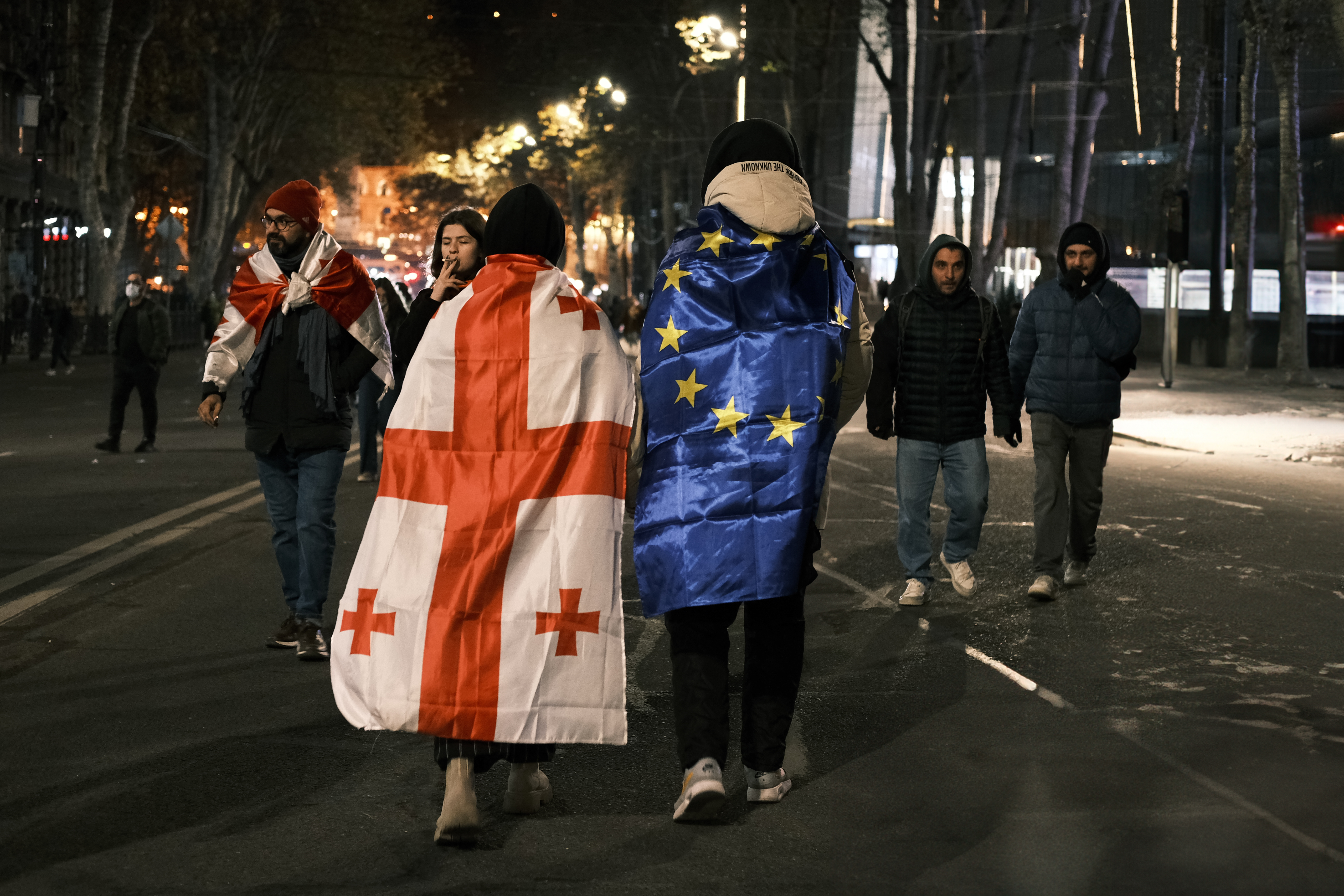
The first ten days of protests were truly a battle. The authorities tried everything to drive people off the streets, but they failed. With every act of violence, more and more people joined the protests. Now, fireworks explode far less frequently, and the protesters have shifted into a marathon phase—everyone is prepared for a long fight for their freedom.
During the day, some buses return to Rustaveli Avenue, but most of the avenue has been blocked off for over 20 days. Cafes have removed their outdoor tables—half of them were dismantled to build barricades. The theatre doors bear marks from rubber bullets, and the windows of nearby buildings are shattered. City workers try to scrub away the endless graffiti on the walls, but it’s futile—everyone knows what’s hidden under the black squares, and new slogans keep appearing beside them.
Every day, different marches take place—union marches, regional marches, student marches. They all end at Parliament, merging into one large, continuous protest. By evening, Rustaveli settles into its now-familiar rhythm: protesters gather, surrounded by people waving the flags of Georgia (Sakartvelo) and the European Union
Rustaveli has become a city within a city. A medical station in a red tent is run by volunteers. Near the Opera House and closer to the metro, hot tea is distributed every evening, and soup is served near the hotel. While waiting in line for hot tea—it’s already below freezing in the evenings—I hear Ukrainian. Several Ukrainian women are volunteering at this station. In fact, many Ukrainians living in Georgia (Sakartvelo) attend the protests almost like going to work. One of them is Sofia Atamanova, who was born and raised in Crimea. After the war began in 2014, her family made a principled decision not to leave the occupied peninsula—they didn’t want to surrender their home to the occupiers. At home, they always spoke Ukrainian, a flag hung on the wall, and a bust of Taras Shevchenko stood nearby. A few years later, Sofia moved to Kyiv but regularly visited her mother and brother. When the full-scale invasion began, her mother finally fled to Kyiv, her brother joined the Ukrainian Armed Forces, and Sofia moved to Georgia (Sakartvelo):
“The first thing I saw in Sakartvelo was a huge number of Ukrainian flags. I remember just standing and crying that first day. I felt like I had come home. Whenever Georgians heard Ukrainian, they would immediately shout, ‘Slava Ukraini!’Almost everyone here has experienced their own war. When Georgians find out I’m Ukrainian, they start sharing their stories about Abkhazia. Over nearly three years, the level of support from people hasn’t changed. I always feel this support. But the Sakartvelo government has done almost nothing to help us. They provided temporary housing at the beginning of 2022 but suddenly evicted everyone soon after. All the aid Ukrainians receive comes from independent foundations and volunteers.
I don’t need assistance because I work in IT, so I immediately started helping those who arrived from Ukraine. I volunteered at humanitarian aid distribution points and later assisted in houses rented by volunteers for displaced people. I helped Ukrainians adapt and find jobs. Then I began creating content for social media. One day, I went to record the story of a woman from Mariupol whose son had died in captivity during the Olenivka (Yelenivka) terrorist attack. Later, she called me and said she needed to travel to Ukraine to take a DNA test—without it, she couldn’t reclaim her son’s remains. She just asked me to find tickets for her. I wanted to pay for them myself, but a Ukrainian foundation helped her instead.”
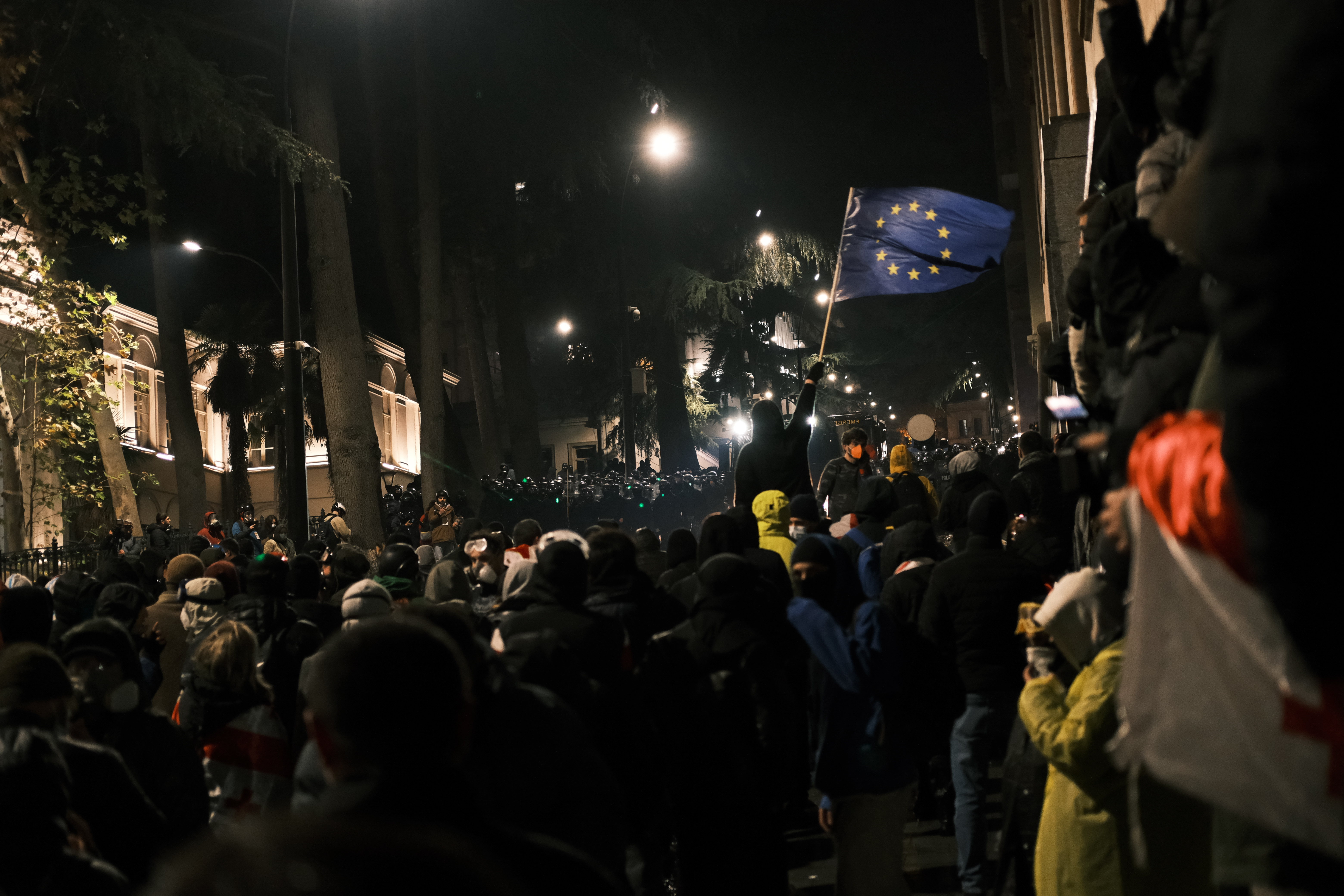
Sofia didn’t only help Ukrainians forced to flee the war. When protests against the foreign agents’ law began in Tbilisi in 2023, she took to the streets to support the Georgians. Having previously worked in photography, she decided the best way to help was by documenting the protests and the violence from the authorities:
“I went out to photograph all the protests that happened here. After posting my first photos, I realised that people from different countries wanted to know what was happening in Sakartvelo. The more interest, the more support. I remember a moment when protesters were trying to get onto the Parliament grounds through a side gate—I was photographing everything. We were hit hard with tear gas that day. A few days later, there was a situation where two priests stood between the police and the protesters. Riot police began advancing, and they sprayed one of the priests directly in the face with pepper gas. That was the moment when I truly started feeling scared.”
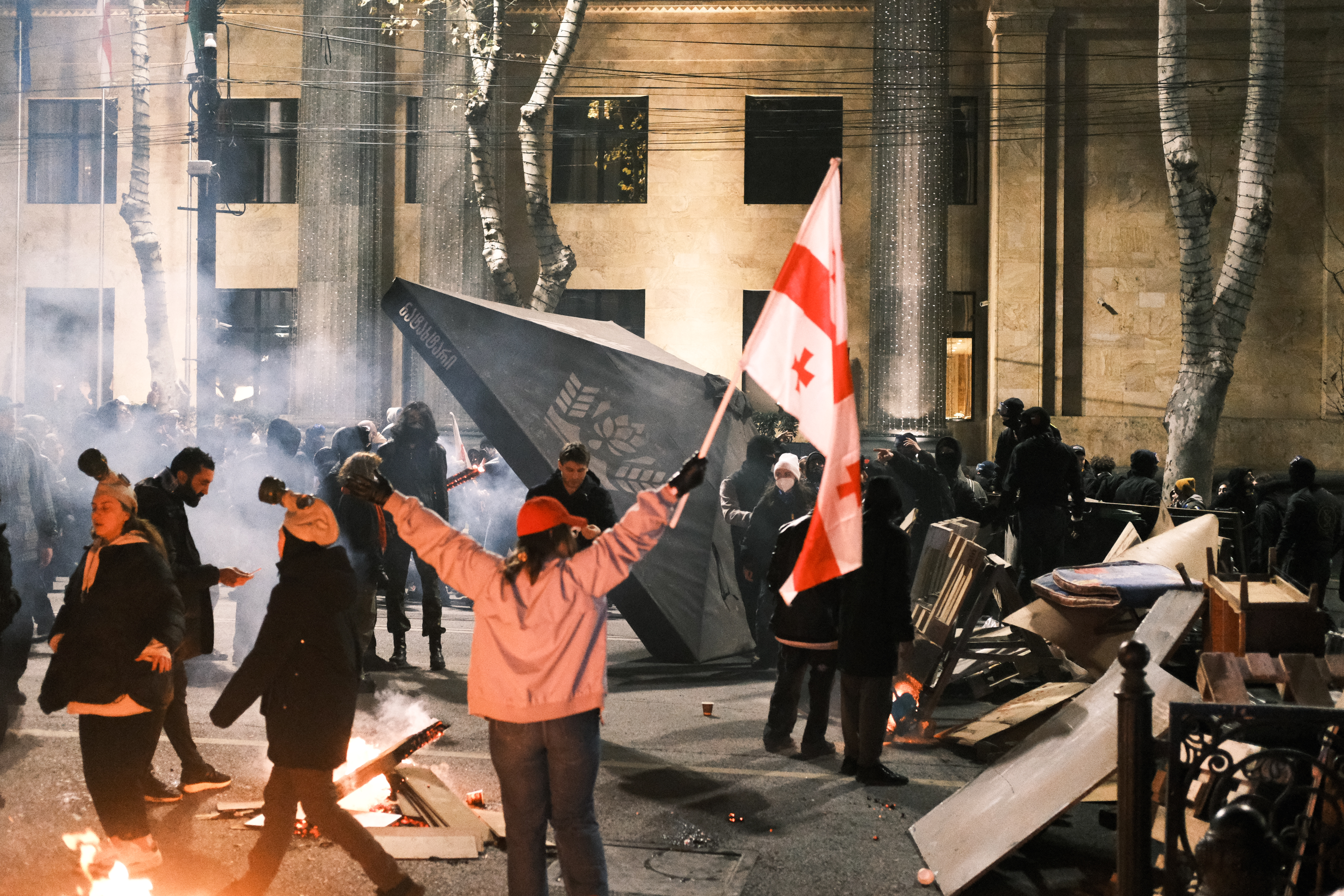
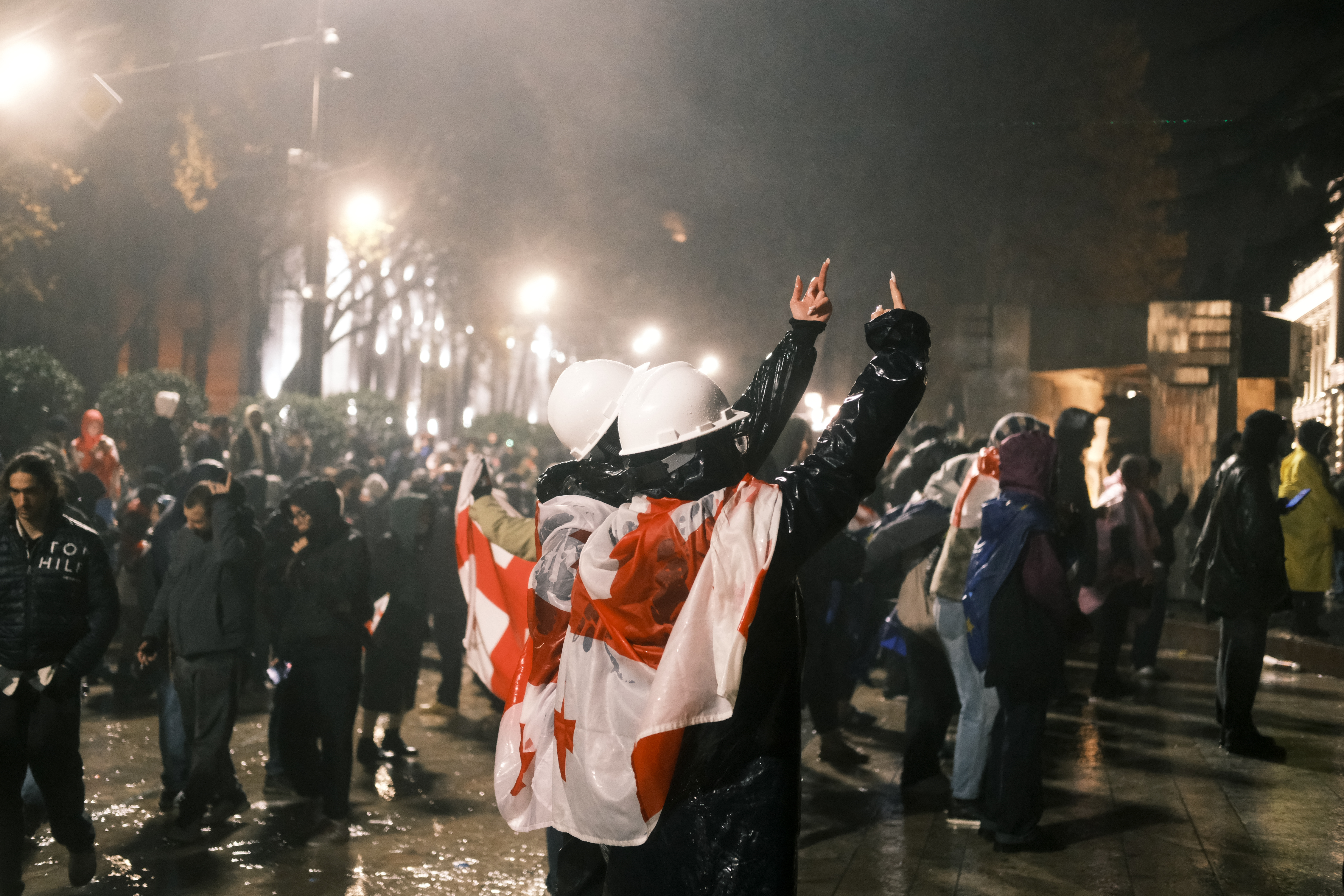
In Crimea, I didn’t experience violence from security forces. At the start of the war, I was only 16, and after that, nothing like protests happened in Crimea—just reinforced concrete occupation. However, I have firsthand experience of how deeply Russian propaganda affects people. In Sakartvelo, I see very similar methods being used to influence the population. In 2014, in Crimea, people were manipulated into believing that if we didn’t choose Russia in the referendum, a war would start. Here, “Georgian Dream” is doing the same thing. During their election campaign this year, they used photos of bombed-out houses in Ukraine with the caption: “If you don’t choose us, Sakartvelo will have war.” Many Georgians were genuinely frightened. Taxi drivers often tell me that if Georgia chooses Europe, war is inevitable, but if we restore relations with Russia, we’ll be safe. And taxis are the best way to understand what’s happening in a country and what people believe.
In 2014, Russia took my home; in 2022, it forced me to flee Kyiv under shelling; and now, this empire is trying to drive me out again, but this time from Sakartvelo. It’s clear that Ukrainians will be pushed out if the ruling party stays in power. Compared to last year’s protests, it’s truly terrifying to go out now—every day feels like a real fight.
On the very first day, I found myself in the middle of the crowd. Rustaveli is a straight and relatively narrow avenue, and at one point, I felt like the crowd was carrying me along. We were hit with tear gas, and everyone was choking. People were literally collapsing to the ground from inhaling so much gas. We made it to the Opera House, where we could finally catch our breath. I ran into the landlord of the apartment I’m renting here—he’s over 80! He told me that while his age no longer allows him to be in the thick of the protest, on 9 April 1989, he was in the front lines.
The security forces have become harsher, and the amount of tear gas has increased significantly. They’re mixing some kind of chemical into the water used by the cannons. My friend and I were hit by a water cannon once, and the white soles of his sneakers turned green afterward. If I get arrested, at best, I’ll be deported. But I will continue to stand with the Georgians and document what’s happening. When you’re there, you feel such unity, such strength. Georgia has become my second home. I feel like no one in the world loves Ukrainians as much as Georgians do. We have so much in common in our histories—our countries know what war is, what occupation is. When I feel scared to go to a protest, I always remind myself that my brother is on the frontlines right now, fighting for our freedom—how can I not protest in Sakartvelo? Both here and in Ukraine, we are fighting the same enemy.”
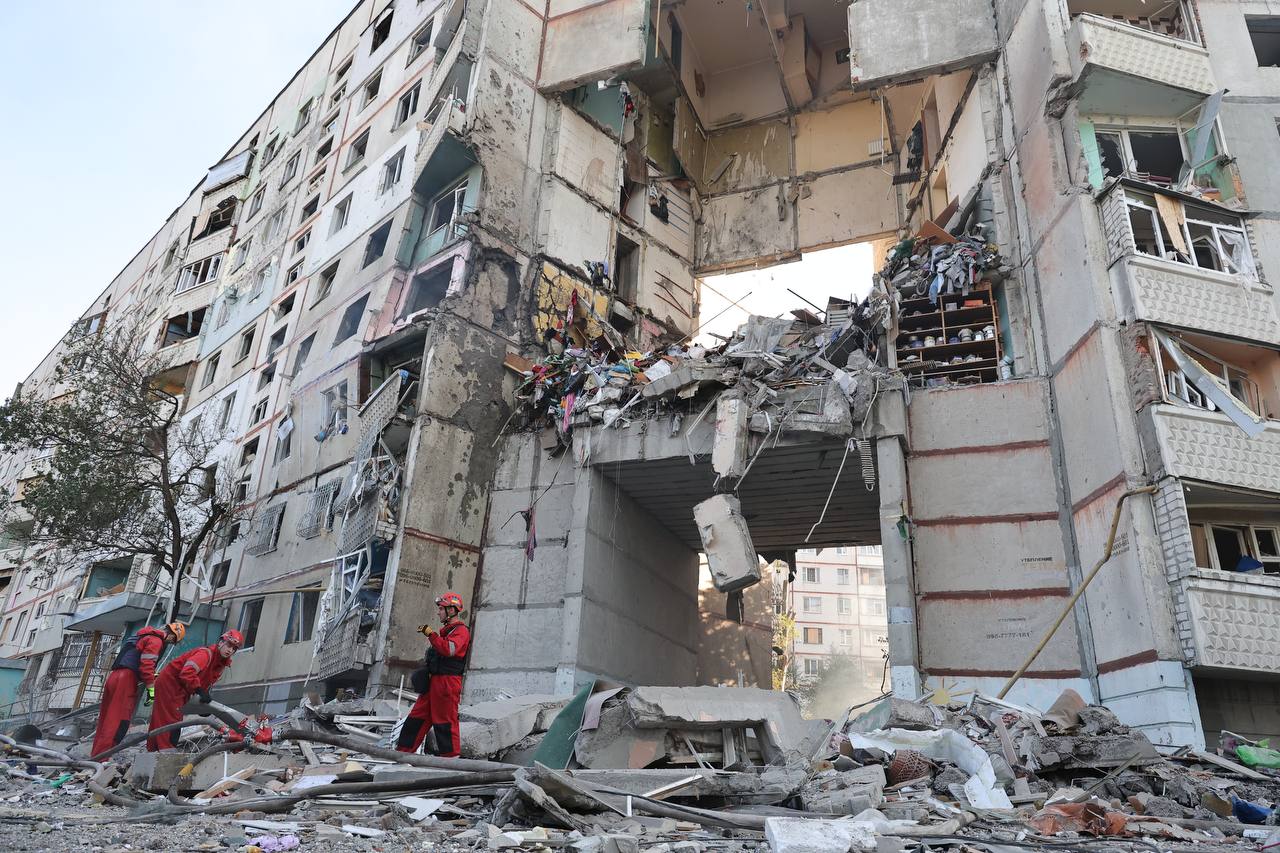
Police officers, officials, and journalists from propaganda channels are abandoning their positions. Georgia’s (Sakartvelo) two largest banks have joined forces, allocating five million lari to support businesses and those affected. Small and medium-sized businesses are refusing to collaborate with the Tbilisi City Hall, removing themselves from the list of participants in the city’s Christmas market. In response, activists are compiling lists of these businesses so people can support them with their purchases. Theatres have closed, concerts are being cancelled—Georgians are buying tickets to events that won’t take place.
The Robocops and police are currently just standing on Rustaveli Avenue. It seems the authorities hope the protests will die down if they don’t actively disperse people. But the demonstrations aren’t limited to Tbilisi—protests continue across all of Georgia (Sakartvelo). ბრძოლას ყოველთვის აქვს აზრი – “The fight always has meaning.”
According to Georgian human rights advocates, over 450 people have been detained so far, and approximately 300 of them have been subjected to torture by security forces.
Supported by Mediaset.